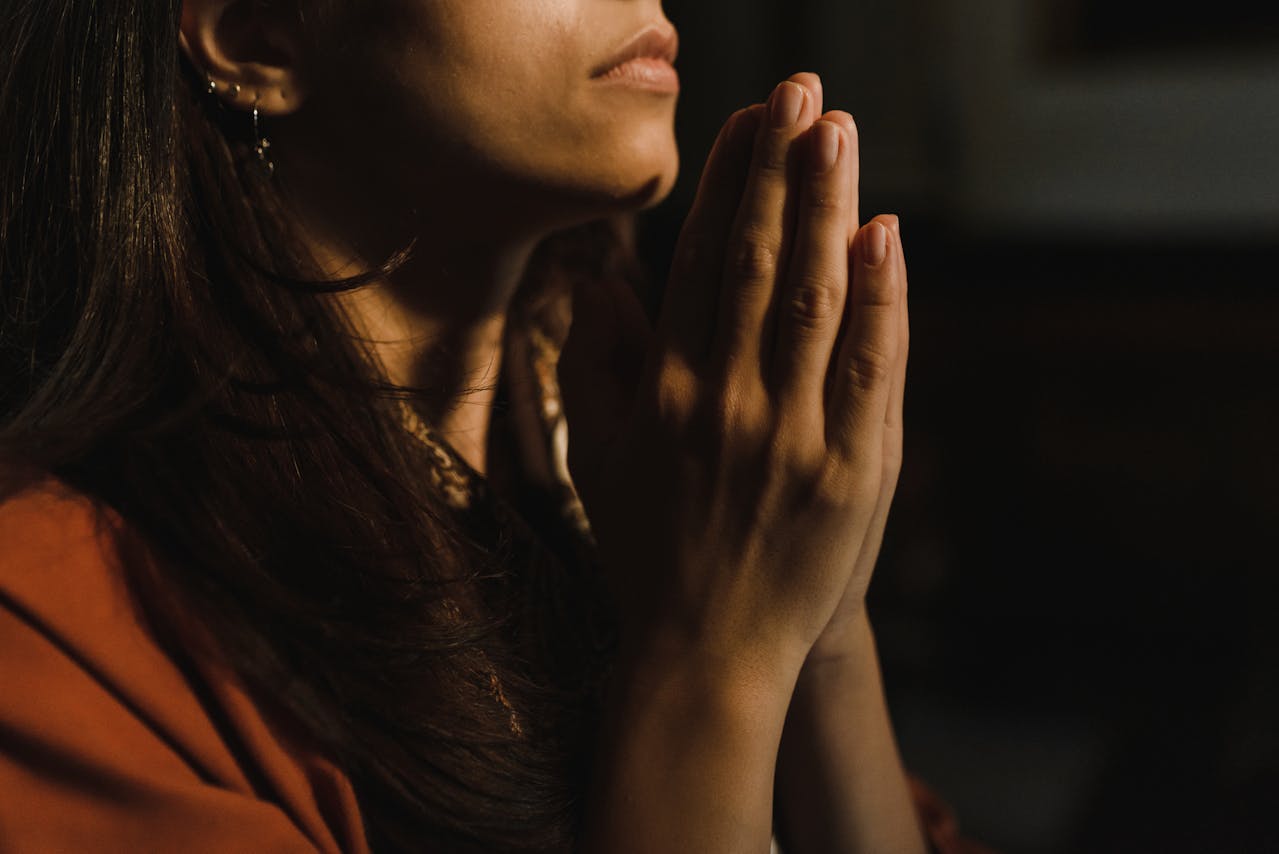
Although still in its early days, the metaverse has already attracted those who seek a religious experience online. (Pexels Photo)
New technologies have always informed and changed our religious experiences. Listening to early radio broadcasts in the 1880s was experienced by many as religious because radio voices seemed to come from some other dimension. Séances became wildly popular at the time because it was thought by some that radio had opened a door to the spirit world.
Today, religion is experiencing new transformations. The information-rich, image-laden character of the internet can provide new ways to understand and explain religious activity.
Although participation in formal religious activities is declining in some parts of the world, new technologies will continue to inform our spiritual lives. The metaverse, the newest medium of our time, is an informational and experiential technology where users can interact in social environments created in virtual reality (VR).
The metaverse is being organized and built using technologies that already exist. Its full form and buildout will require the use of technologies that do not yet exist. For example, rapid rendering or computing in 3D online space is not possible using existing technology. However, gaming companies in particular are already seeking solutions to this challenge.
Religion in the metaverse
About a quarter of Americans already go online to engage in religious activities, such as watching a sermon or reading scripture. The metaverse will increase opportunities for online religious experiences by deepening users’ sense of belonging. It will allow users to listen to others, select and read texts, empathize with the situation of others and share individual and corporate aspects of well-being.
Although still in its early days, the metaverse has already attracted those who seek a religious experience online. Second Life, a VR environment released in 2003, has 37 virtual spaces for religious activity. The religions represented by these places include Christianity, Buddhism, Islam and others.
Virtual reality can feature virtual versions of existing, or previously existing, religious spaces. It can also provide imaginative spaces with no correlation to the actual world.
While VR allows to engage with religious environments online, it does not yet allow users to navigate fully and continuously in an immersive religious space: standing, sitting, walking and communicating with others in real time, synchronously and persistently. However, as the technology develops, it will be able to provide much more immersive experiences.
Similarly to television and radio, online religious experiences in the metaverse will be attractive to users by its useful properties, which are sometimes called affordances.
Affordances are actions that users recognize as possible and useful. Developers of a medium may not necessarily anticipate affordances. Instead, they are discovered while the technology is used in different ways.
Metaverse affordances that support and enable religious experiences already exist in VR but will become more robust and powerful in the metaverse.
For example, increasingly immersive technology will allow people to engage with metaverse environments through multiple human senses. This is a practical characteristic for meeting and co-ordinating action in an online religious space.
Similarly, social presence and embodiment are affordances of the metaverse that will be of particular use to religious participants. Presence is a state of being in a space that is synchronously experienced with others. Embodiment is a user’s sense of participating in social interaction and acting within a shared space.
Improving usability in the metaverse includes retrieving and reading from texts, such as musical scores, prose poetry or liturgical readings. Empathy is required to establish, maintain and expand the recognition users have for the situation of others.
Novel religious experiences
Some religious experiences in the metaverse will be the same as those found in the actual world, such as meeting regularly for worship. But we can also imagine radically novel uses of the metaverse for religious experiences.
One such experience could be talking to the dead. Some cultures maintain a spiritual focus on revering the dead. The metaverse erases temporal and spatial boundaries by offering immersive experiences informed by vast stores of knowledge and information gathered across time and space. This is of particular significance for religious beliefs concerned with eternity and infinity. Using computer-rendered sound and images of the dead, the metaverse will allow virtual communication with past generations.
The organizational structure of the metaverse, when compared to that of previous online forms of participation, is likely to be more decentralized. The design of the metaverse will incorporate peer-to-peer relationships. Second Life religious spaces have already been created, developed and maintained in part by user groups themselves.
The metaverse may one day be fully community-governed. It may represent religious experiences characterized by the full participation of members reflecting the congregationalist, self-governing beliefs of, for example, Baptists and Presbyterians in the Christian context.
While the metaverse as a religious space may seem novel for now, it’s capacities for action provide clear evidence that religious users will find much to value and use in this new medium.![]()
Marco Adria, Lecturer in Media and Technology Studies, University of Alberta
This article is republished from The Conversation under a Creative Commons license. Read the original article.





















